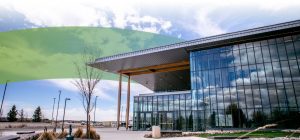College hosts session to help plan for the future
By Rob Vogt
Lethbridge College wants to prepare its students for all the opportunities and challenges they will face when they enter the workforce.
On Friday, June 16, the college held “Road to Ready” an engagement session at the town office and multi-use community building hosted by Brad Donaldson, the college’s president and chief executive officer.
He explained the session was part of a continuous journey of being ready for the future.
“The world has shifted,” he said.
The pandemic and its aftermath have re-shaped a number of things including how students learn and what the work place looks like.
He started with describing the future state.
That means developing a vision, mission, values and institutional priorities for the college that are:
• inspirational, aspirational and empowering to everyone in the Lethbridge College community;
• Succinct and focused on priorities that differentiate the college, build on its previous success, and seize opportunities in the face of challenge to achieve the college mission;
• Measurable that the college can track and progress and dynamically shift as needed;
• Frame the priorities for the institution going forward.
“We want to make sure what we do aligns with what we identify,” Donaldson said.
The current state includes a vision that states, “Leading and transforming education in Alberta” and a mission that reads, “Lethbridge College inspires and facilitates learning and innovation to meet economic and social needs.”
It also includes the college’s principles:
• Inclusive – equitable, diverse, and inclusive of ideas and perspectives through consultation and engagement of internal and external stakeholders and constituents;
• Transparent – process is clear, minutes available, regular communications, decision rationale;
• Future focused – what must the college aspire to and do to meet the future needs of the college and its stakeholders;
• Open-minded – willing to embrace new ideas and challenge assumed standards or norms;
• Iterative – informed by data collected during the process.
The process of “Road to Ready” has four phases.
Phase 1 is process development; Phase 2 is exploration, listening, and research; Phase 3 is ideation and development; and Phase 4 is finalization, communication and kick-off.
The framework for “Road to Ready” consists of three parts.
The “why” is the purpose, cause, and belief that inspires action.
The “how” is the values and guiding principles to realize the “why”.
The “what” is everything the college says and does to accomplish the “why”.
Donaldson then put half a dozen people in attendance to work, breaking into two groups to answer four questions:
1) What challenges will your community face in the next five years? What challenges will Lethbridge College face in the next five years?
2) What will be the greatest opportunity your community will have in the next five years? What will be the greatest opportunity Lethbridge College will have in the next five years?
3) What is one thing that would make Lethbridge College more successful in the next one to three years?
4) How can we improve communication within your community?
The people attending “Road to Ready” were a cross section of people representing different aspects of Claresholm and surrounding area including agriculture, education, government, and community services.

